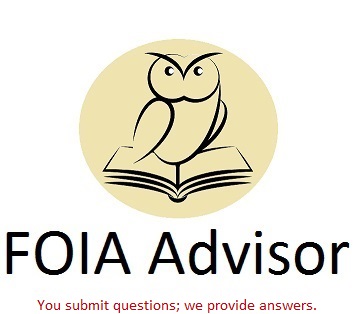On June 7, 2018, the State of Connecticut enacted a law that permits its Freedom of Information Commission to relieve an agency from responding to a "vexatious" requester for up to one year. The grounds for being considered vexatious can include the number of requests, the scope of the requests, the nature or content of the requests, and/or a pattern of conduct that amounts to abuse. The staff of FOIA Advisor -- Allan Blutstein (AB), Kevin Schmidt (KS), and Ryan Mulvey (RM) -- share their views on the whether the federal government should adopt a similar provision.
RM: The issue of so-called "vexatious" requesters is a difficult one, in my mind, if only because the term "vexatious" is so hard to define. Are you vexatious if you merely submit a duplicate request? What if you submit multiple requests to the same agency on the same day, but those requests are on different subjects? Should an agency treat someone as a vexatious requester if he is responsible for some pre-defined percentage of an agency's FOIA processing queue or backlog, regardless of any other considerations? Any approach will present a unique set of problems.
The new Connecticut law handles the question is an interesting way by assigning actual responsibility for determining whether a requester is vexatious to a state-wide commission. Some of the factors to be considered include the number of requests filed, their scope, their subject matter, and whether the requester has exhibited a pattern of abusive conduct--whatever that is supposed to mean! I appreciate removing the agency from the equation, but this still leaves the government too much discretion. The state legislature should have given a clearer definition of "vexatious," and better procedural protections for an aggrieved requester. The only option for appeal is filing a lawsuit.
I would be disinclined to see the federal government adopt a similar provision. Do we really want agencies to be making these open-ended inquiries into vexatiousness? Could some entity, say, OGIS or DOJ-OIP, handle the matter government-wide? There has been a lot of politicization of FOIA processes during the Trump and Obama Administrations. Allowing an agency to dismiss a "vexatious" request would probably just open the door to more abuse. Plus, do we really know if this is wide-spread problem? I want to see the data.
AB: Interestingly, Ryan, NARA's FOIA Advisory Committee considered this issue a few years ago in the context of fee reform and it raised a number of the same concerns that you identified. I believe the Committee ultimately abandoned the idea, which strikes me as the right call. As it stands, federal agencies are not required to process unreasonably described requests or to conduct wide-ranging, unreasonably burdensome searches. If we are concerned about the rising burden of voluminous requests (and we should be), I would prefer to amend the fee provisions -- e.g., eliminating favored fee categories and/or reducing free search time to 30 minutes -- than to add a nebulous "vexatious requester" exception.
KS: I sympathize with the fact that some members of the public may use public records laws in a way that drowns some agencies in requests, but, like Ryan, I have serious issues with proposals I've seen to handle the issue. I also think it's possible that the treatment may be worse than the disease in some cases. As Ryan discussed, there's a whole can of worms that's opened if "vexatious requester" laws take effect. The Connecticut law doesn't specifically address, for example, if or how decisions and the rationale to label a requester as vexatious will be publicly posted or explained. Without releasing enough public information, that could lead to FOIA requests to obtain information about the process of banning requesters.
I'm not familiar with the issues that led to this proposed change (although proponents touted anecdotes of individuals filing numerous requests over a certain time frame), but I am confused as to why this would be an issue when the state charges fees tor search time and copies. Presumably, charging fees in accordance of the law would deter a deluge of requests.
Put me down as opposed to any proposal to bring this to the federal government. The last thing we need is another federal entity dedicated to adjudicating agency complaints about requesters. How much already precious staff time would be wasted on writing up complaints?
